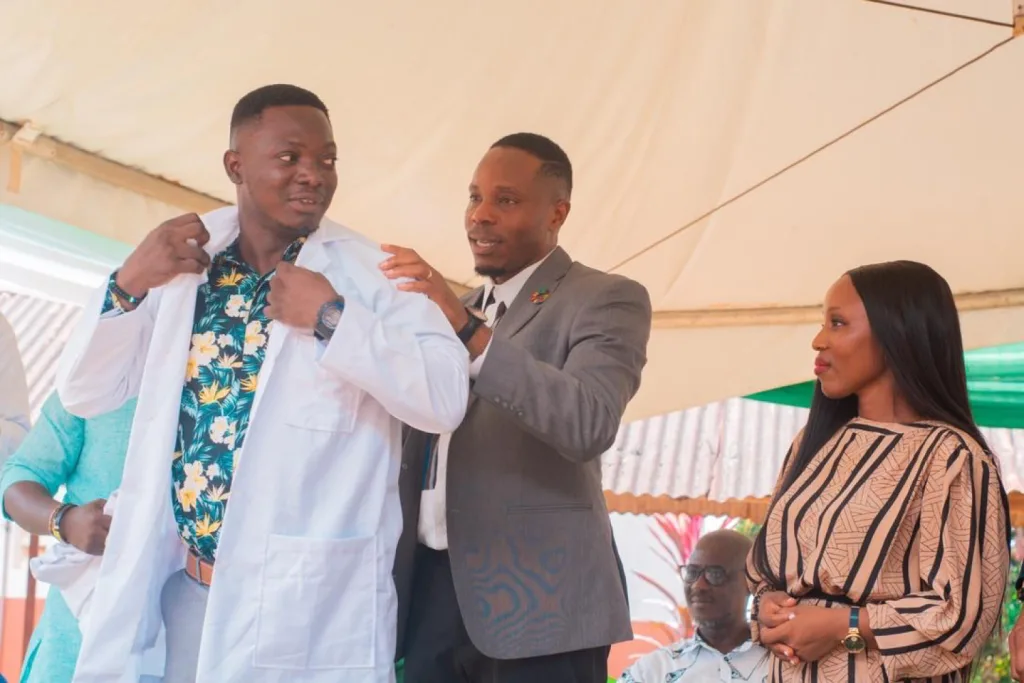The K. Lisa Yang Center for Bionics at MIT has partnered with Sierra Leone’s Ministry of Health (MOH) to establish the nation’s first fully accredited educational program for prosthetists and orthotists. This groundbreaking initiative addresses a critical need, as tens of thousands in Sierra Leone require orthotic devices and prosthetic limbs, yet access to specialized care has been severely limited.
On November 7, the inaugural cohort of forthcoming prosthetic and orthotic clinicians received their white coats during a significant ceremony at Sierra Leone’s National Rehabilitation Center, marking the beginning of their specialized training.
Last year, a detailed memorandum of understanding was signed between the Yang Center and MOH, kick-starting efforts to enhance the country’s orthotic and prosthetic (O&P) services. The Yang Center is part of the broader Yang Tan Collective at MIT, dedicated to enhancing human well-being through global collaborations in science and engineering.
This initiative aims to bolster the supply chain for assistive technologies, improve clinic infrastructure, streamline technology translation, and expand educational opportunities for Sierra Leoneans, thereby increasing local O&P capacities. The implementation of this educational program is a step towards ensuring sustainable and independent operation of O&P services for the many citizens who endure physical disabilities due to conditions such as amputation or poliomyelitis.
The training will be conducted in partnership with the Human Study School of Rehabilitation Sciences, a nonprofit based in Germany known for its effective training models utilized across 53 countries, including 15 in Africa.
“This White Coat Ceremony marks a significant achievement in our overarching strategy to enhance care for individuals with disabilities,” remarked Hugh Herr SM ’93, a professor at the MIT Media Lab and co-director of the K. Lisa Yang Center for Bionics. Herr has been instrumental in the center’s collaboration with the MOH. “We are pleased to introduce Sierra Leone’s first program for clinical education in this field, enhancing the availability of prosthetic and orthotic healthcare nationwide.”
The ceremony featured a keynote speech from the Honorable Chief Minister of Sierra Leone, David Sengeh SM ’12, PhD ’16. As a former student in Herr’s research group and a passionate advocate for a more inclusive Sierra Leone, Sengeh’s involvement underscores the significance of this collaboration.
“The government is thrilled about this partnership with the K. Lisa Yang Center for Bionics at MIT, aligning perfectly with our national development plan and priorities,” stated Sengeh. “Our aim is to invest in human capabilities and strengthen systems that promote inclusion.”
Francesca Riccio-Ackerman, the graduate student leading this project, emphasized, “This program creates pathways for individuals with disabilities to become clinicians, thus providing care to others facing similar challenges, which is a tremendous step toward inclusivity.”
The first class of O&P students comprises 11 men and women from various regions of Sierra Leone, all of whom have completed an intensive preparatory program and passed an international entrance exam to secure their places. The students are expected to finish their training by early 2027 and will have the chance to earn certification as associate prosthetist/orthotists through the International Society for Prosthetics and Orthotics, a hallmark of excellence in the field.
The educational program will utilize a hybrid model developed by the Human Study School of Rehabilitation Sciences.
“Human Study’s humanitarian education program is unparalleled. We operate the world’s only prosthetics and orthotics school that meets international standards at all levels of the P&O profession,” said Chris Schlief, founder and CEO of Human Study. “We are honored to collaborate with the Ministry of Health and MIT’s K. Lisa Yang Center for Bionics to bring this training to Sierra Leone. Prosthetics and orthotics play a crucial role in enhancing mobility, dignity, and equality for individuals with disabilities. We take pride in being part of a pioneering program that will train the first generation of P&O clinicians and create a lasting impact.”
For Sengeh, who authored “Radical Inclusion: Seven Steps to Help You Create a More Just Workplace, Home, and World,” this new educational program exemplifies his vision for a more inclusive society. “As an MIT alumnus and Chief Minister of Sierra Leone, this collaboration reflects true vision, initiative, and impact. As I often state, through Radical Inclusion #WeWillDeliver.”
Photo credit & article inspired by: Massachusetts Institute of Technology



